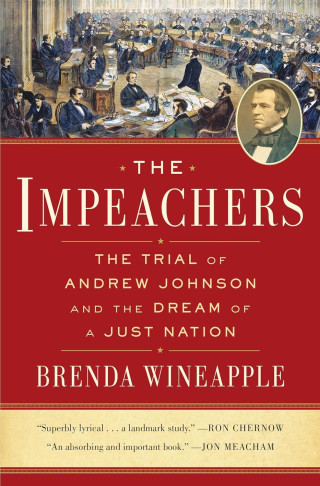We have no scientific polls from that era to quantify what percentage of the country was on Johnson’s side, but the numbers don’t matter—for the same reason the numbers didn’t matter to the Republicans who charged ahead with their unpopular impeachment of Clinton. In any momentous national political confrontation, it’s not about the raw number of people who back you, but the authentic Americanness of the people you claim to represent. This was as self-evident to Johnson as it is to any right-wing demagogue today. Johnson was a “man of the people,” and “the people” in American political discourse, dating back to “We the people” itself, have always been more a concept than a literal population.
And of course, Johnson’s base of support had to be a minority, because he was fighting to narrow American democracy at just the moment it threatened to expand enough to extinguish the white supremacy that men like Johnson believed was foundational to the entire American project. By definition, this version of the people could not include black Americans, and it would continue excluding fully half of the adult population of America from the franchise for another 50-plus years.
Even without polling, and within that narrow cohort of the actually existing American people, it’s unclear if Johnson had anything like the popular support he imagined he deserved. Though racist conservatives in the North and South cheered him on in his fight against Congress, Democrats never forgave him for joining Lincoln’s ticket. He did make an aborted attempt to revive a third party—a sensible, moderate, third-way party, which would unite white populist Democrats with conservative Republicans who felt the Radicals were taking the whole racial equality thing too far—that, as these things tend to do, pissed off both sides. But he had his fans. Wineapple describes a few pieces of correspondence he received from admirers, sounding remarkably like MAGA Twitter thirstily @-ing the object of their own devotion. One wrote him advising that if Congress tried to impeach him, he should simply “Arrest the traitors.” Lock them up!
But history does not actually repeat itself, and the differences between that era and ours are perhaps even more important than the similarities. Reading Wineapple’s book, one is struck by the degree to which the Radical Republicans controlling Congress (in the House, especially) were not cowed by the prospect of reprisal at Johnson’s hands. Congress repeatedly acted aggressively and decisively, with no cringing fear of backlash. A Johnson-supporting lawyer, Charles Woolley, refused to cooperate with a House committee investigation into possible corruption in the impeachment vote itself. So the House arrested him for contempt of Congress and locked him in the basement of the Capitol. It’s truly incredible to note how industrious and aggressive Congress was in this era: The 40th United States Congress managed to ratify the Fourteenth Amendment, send the Fifteenth Amendment to the state legislatures, pass three comprehensive Reconstruction acts, and impeach the president, all within one term, back when members traveled to and from Washington by stagecoach and rail.
To be sure, all this aggressive oversight was only possible because Republicans had huge majorities in each chamber of Congress, and only because party leaders refused to seat representatives from the former Confederate states until they actually held elections black men could participate in. Still, even that strategic advantage speaks to their courage and resolution: They knew that their political project depended not on compromising with their enemies but on defeating them.
